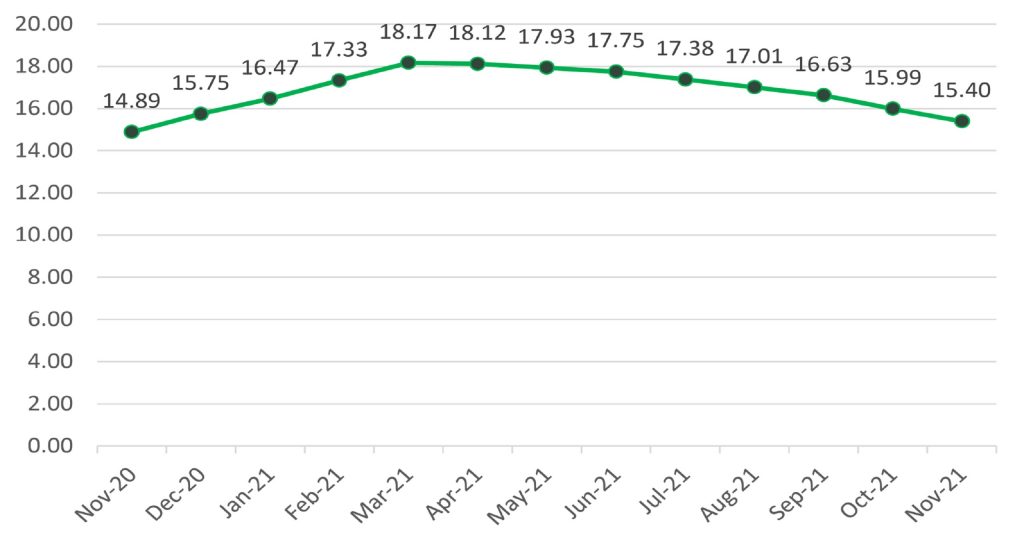It is still double-digit inflation but in November, Nigeria experienced its lowest inflation climb in more than five years.
In November, eased by 0.59 percentage points to 15.40% in November.
According to Simon Harry of the Nigerian Bureau of Statistics (NBS), “Inflation has continued its declining trend.”

Last month, Finance Minister Zainab Ahmed said the government planned to remove a longstanding fuel subsidy next year and replace it with 5,000 naira monthly payments to the poorest families as a transport subsidy.
But analysts have said that the reform could reduce the government’s expenditure but stoke inflation.
Nigerian financial authorities have said that the persistent inflationary pressures are structural – linked to deficits and not solely a money supply issue – and largely imported.
Food price inflation, the major headline component, declined by 1.13 percentage points in November to 17.21%, the statistics office said.
While core inflation, excluding prices of farm produce, rose 0.61 percentage points to 13.85%.
Nigeria imports many key goods and services.
A dollar shortage has prompted the government to put restrictions on forex for certain items, keeping the pressure on prices.
The World Bank in November urged Nigeria to end its costly fuel subsidy within the next three-to-six months, improve exchange-rate management and speed up other reforms to boost growth. read more
Nigeria had been grappling with low growth since before the COVID-19 pandemic triggered a recession and created large financing gaps, including dollar shortages and inflation.
The World Bank projected Nigeria’s economy would grow 2.4% this year after it rose 4% in the third quarter, its fourth quarterly rise. However, third-quarter growth rate slowed compared with the previous quarter.



